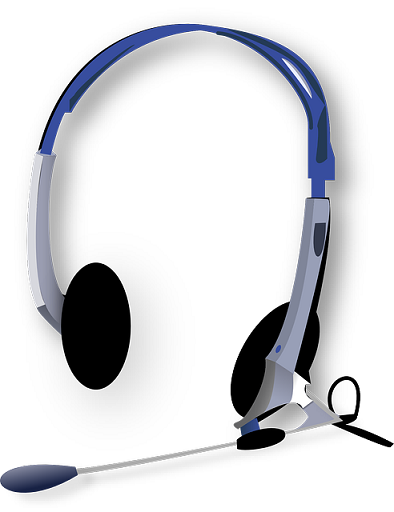
Getting good TOEFL Listening practice in can be difficult because a lot of practice questions and quizzes aren’t high quality. The questions they ask aren’t similar to what you’ll see on the TOEFL, the conversations and lectures don’t follow the same format as the real exam, and some don’t even include audio recordings, which is pretty much the entire point.
Not to fear though, we’ve combed through TOEFL Listening practice materials and compiled all the best options for you. Read this guide to learn what you should be using to prepare as well as the tips you need to follow in order to get the most out of your studying.
Overview of the TOEFL Listening Section
Listening is the second of four sections on the TOEFL. The entire section lasts 60 to 90 minutes and includes four to six lectures and two to three conversations. Each lecture lasts about three to five minutes and is followed by six questions, and each conversation lasts about three minutes and is followed by five questions.
The variation in time and length is due to the fact that some test takers will have un-scored experimental questions in their TOEFL Listening section, making it extra long, while others will have experimental questions during their Reading instead. You won’t know which questions are experimental and which are graded, so try not to worry about it too much.
The lectures and conversations will be similar to those you’ll likely hear as a student. They may be a conversation between a student and teacher, a class discussion, a lecture by a professor, or a similar scenario. There will be pictures on the computer screen to give you an idea of how many people will be speaking and what anarkan setting will be.
What You’ll Need to Be Prepared for TOEFL Listening
In order to succeed on TOEFL Listening, you’ll need strong listening, writing, and reading skills in order to listen to the audio recordings, take notes, and answer questions correctly. TOEFL Listening requires multiple skills, you’ll need multiple TOEFL Listening exercises to be completely prepared. Some of the main things you’ll need for your TOEFL Listening exercises include:
By the way: we have built the world's best online TOEFL course. Get online practice (TPO-sytle!) and individual grading and feedback on Speaking and Writing.
To be fair, it's possible to get a good TOEFL score studying alone. But PrepScholar is the world's most effective TOEFL course if you are worried about the TOEFL and are struggling to improve your score.
Learn how you can improve your TOEFL score by 15 points today.
- Complete TOEFL Listening practice tests
- Individual TOEFL Listening practice questions
- Opportunities to practice your listening skills
- Opportunities to practice your note-taking skills
In the next section, we’ll discuss the best resources for TOEFL Listening practice.
The Best TOEFL Listening Practice Tests
In this section are all the best TOEFL Listening study materials, organized into three groups. Use these resources to be prepared and confident on test day.
Official Prep Materials
Official resources are the best to use during your TOEFL Listening exercises since they are often very similar to the real test, particularly if they include audio recordings. In this section we discuss all the TOEFL Listening practice materials available, both free and paid. ETS doesn’t provide just Listening questions, so each of the resources listed below includes practice material for the other TOEFL sections. Be sure to use at least some of these resources during your studying.
TOEFL iBT Sampler
The TOEFL iBT Sampler is a program you can download with official practice questions. It’s a high-quality free and official resource to use. It includes a full practice exam, including a complete TOEFL Listening practice test with audio recordings. However, the Sampler only works with Windows, so you can’t download it if you use a Mac.
TOEFL iBT Quick Prep
Quick Prep is another free resource which contains four volumes of practice questions. Each volume includes a PDF of practice questions that covers all sections of the TOEFL, including TOEFL Listening. Two volumes also include audio recordings of Listening questions to go with the PDF. Volumes 1 and 2 only include transcripts of the audio recordings for the Listening section, but Volumes 3 and 4 include both transcripts and audio files, so they are closer to the actual TOEFL Listening section.
TOEFL iBT Sample Questions
This PDF is another free and official resource. It’s not the best official resource to use since it has no audio recordings, only transcripts of conversations, and it pretty short (just two conversations), so it isn’t that close to the format of the real TOEFL Listening. However, the questions themselves are still high-quality, and studying them can give you a better idea of what questions will look like on TOEFL Listening.
TOEFL Practice Online (TPO) Tests
TPO tests are retired TOEFL exams now sold to people studying for the TOEFL. They give the closest experience to the real TOEFL, and include a complete TOEFL and audio recordings for each Listening conversation. You’ll have to pay $45 for each complete TOEFL you buy (you can’t just buy individual Listening sections). Your exam will be automatically graded after you finish it.
This is a useful resource, but if you don’t want to spend that much money on a TOEFL listening practice test, it’s perfectly possible to do well just using the above practice resources.
Official TOEFL Prep Books
ETS sells several official TOEFL prep books. The Official Guide to the TOEFL Test, in addition to explaining the types of questions on the test, contains numerous practice questions and three full-length exams. There’s also the Official TOEFL iBT Tests Volumes 1 and 2. Each of these books contains five unique practice tests, available on paper and the computer. Audio recordings for the Listening section are included either on a CD or with an online access code you receive with the book.

Unofficial Prep Materials
Unfortunately, there aren’t a lot of high-quality, unofficial practice tests out there for TOEFL Listening. Many resources use transcripts instead of audio recordings and/or have recordings and questions that are very different from what you’ll see on the TOEFL. This means that those materials won’t be giving you a great idea of what the real TOEFL will look like. Below are some of the better unofficial TOEFL Listening practice tests out there, as well as information on TOEFL prep books.
PrepScholar
At PrepScholar, we’ve created a full-length TOEFL Listening test with the same format, language and time limits you’ll see on the real TOEFL. In my opinion, it’s the most accurate unofficial TOEFL Listening practice test.
You can access this practice test for free via PrepScholar TOEFL’s YouTube channel or click below to play. tThe answer keys to this practice test can be accessed in the description of the video’s YouTube page.
Exam English
This site has five recordings of Listening lectures and three conversations, each followed by about five to ten questions. They aren’t an exact replica of the real TOEFL Listening section, but they do a decent job of simulating TOEFL recordings and Listening questions.
Magoosh
Magoosh has a PDF and audio recordings you can download that include one lecture and one conversation, along with questions for each. There’s not a lot of practice material here, but the audio recordings and questions are high-quality, and they come with in-depth answer explanations which can help if you’re struggling to understand why a particular answer is correct.
Unofficial Prep Books
Prep books, even unofficial ones, are usually a great resource for practice questions. Most books include sample Listening questions with audio as well as one or more complete practice TOEFLs at the end of the book. You can learn all about the best TOEFL prep books by reading our guide.
Other TOEFL Listening Study Resources
Your preparation shouldn’t only consist of answering practice Listening questions; just getting regular exposure to hearing English spoken will help you improve the skills you need to do well on this section. Below are some of the best ways to hear more spoken English.
TED Talks
During a TED Talk a speaker talks about an issue they feel strongly about for about 10 to 20 minutes. The speech can be about pretty much anything, from technology, sea animals, how to tell when someone is lying, and more. The speaker is often an expert in the field they are discussing. These are a great option for listening to spoken English since they’re fairly short and often very engaging. Also, there are so many talks available (over 2000 on their website), that you can be sure to find a topic that interests you.
Podcasts
Podcasts are another great listening resource since they cover a variety of topics to suit your interests and can be listened to almost anywhere. You can choose a podcast based on your interests or look for ones specifically designed for English learners.
Google “ESL podcasts” for some ideas. Popular options include BBC’s The English We Speak and Breaking News English. Both are geared towards English learners.
Want to improve your TOEFL score? We have the world's leading TOEFL course.
Built by world-class instructors from Harvard and MIT, the course offers individual review, interactive lessons, and realistic online praactice, at an affordable price! It's the fastest way to get your target TOEFL score.
News Stations
News stations are also a great way to hear English. Newscasters often speak more clearly than the average person, so if you’re still working on your listening skills, you may find them easier to understand. Many major news networks will post short clips on their website or YouTube which recap news stories.
In-Person Conversations
A final way to boost your listening skills is to have a conversation with a real live person in English. This can be done through an English club or just with a friend who speaks English or is also learning. By conversing with them, you’ll improve your listening skills as well as your speaking skills, which can help you on the Speaking section of the TOEFL as well! Try to talk about different topics each time you meet up to broaden your vocabulary and make you more confident in a variety of speaking and listening situations.

How to Get the Most Out of Your TOEFL Listening Practice
Once you know which resources to use to prepare for TOEFL Listening, it’s time to focus on how to use those materials in the most effective way. Below are three tips to help you get the most out of your studying.
Take Complete Listening Practice Tests
The TOEFL Listening section can be challenging because you spend it going back and forth between listening to recordings and answering questions. After a few recordings, you may get tired and your attention may start to lag on later parts of the test. This can really hurt your score if you miss important information in the audio recording, so you want to take steps to avoid this, and one of the best ways to do that is to take complete practice Listening sections.
A full Listening section is four lectures and two conversations. While you’re studying, set aside time regularly to take complete practice Listening sections with no breaks and no distractions, just like on the real TOEFL. Doing this will help you become familiar with the length and pacing of the Listening section before test day.
Official resources are often the best to use for this since most have enough questions for at least one complete Listening section.
Practice Taking Good Notes
You should take notes on every lecture or conversation you hear during the Listening section. Don’t trust your memory; these recordings are each several minutes long and can contain a lot of information. Get into the habit early by taking notes during every practice recording you listen to. While taking notes keep these tips in mind:
- Write while the recording is playing (not after) to lessen your chances of forgetting something and running out of time between the end of the recording and the beginning of the questions.
- Focus on main ideas while taking notes. Don’t worry about getting every word down; most questions won’t focus on minor details. Concentrate mainly on why each speaker is talking, what their motive is, and the main points they make.
- It can also help to make a separate column in your notes for each speaker and write the main points of what they say under the appropriate column to make it easier to recall who said what.
Become Comfortable With Background Noise
The audio recordings in the TOEFL Listening section purposely include background noise in order to more accurately recreate classroom and academic situations you’ll often find yourself in. While the main speaker is talking, there may be construction going on in the background, students having side conversations, music playing, or something similar. You’ll still be able to hear the speaker(s) clearly, but these background sounds can be distracting if you aren’t used to them and make it harder for you to understand what is being said.
The best way to avoid being distracted is to get used to hearing English with background noise. News casters will often do some stories outside, and these often include other noise (traffic, wind, people talking in the background). Other good options include speeches given to large crowds, such as graduation speeches, which often have guests murmuring in the background.
Review: TOEFL Listening Exercises
It’s important to use high-quality study materials when doing your TOEFL Listening practice in order to get the most accurate idea of what to expect on exam day. Use a combination of official, unofficial, and listening resources in order to be well prepared.
While studying, you should also be sure to keep these tips in mind:
- Take complete TOEFL Listening practice tests
- Practice taking good notes
- Become comfortable with background noise
What’s Next?
Looking for more information on the TOEFL Listening section? Learn all the tips you need to know in order to ace TOEFL Listening!
What score should you be aiming to get on the TOEFL? Learn what a good TOEFL score is based on the schools you’re interested in attending.
Want more resources to help you prepare for the TOEFL? Prep books are one of the best ways to raise your score. Read about the five best TOEFL prep books and learn how to choose the best one for you.
Ready to improve your TOEFL score by 15 points?
Download our best TOEFL Strategy eBook (valued at $14.49) for FREE! Learn the top 5 strategies you must know to improve your TOEFL score. Download it for free now:
